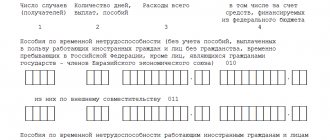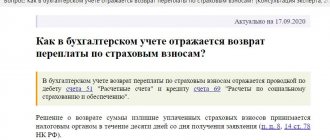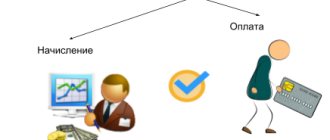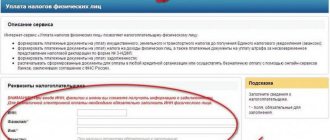Advantages for taxpayers when creating a consolidated group
The biggest advantage for members of a consolidated group (hereinafter referred to as the CG) is that the burden of paying income tax is significantly reduced.
The loss-making and profitability indicators of all CG participants are summed up. The tax base of all companies that are members of the group is added up (consolidated). In this case, transactions carried out between the parties to the agreement on the creation of a corporate group cannot be the object of transfer pricing. The only exceptions are transactions concluded in relation to extracted minerals.
Participating companies merge without creating a legal entity in order to reduce the tax burden on income tax. This tax is calculated as a whole for the CG and is paid on the basis of the norms prescribed in Chapter. 3.1 Tax Code of the Russian Federation.
IMPORTANT! Starting from September 2021, tax authorities no longer register agreements on the creation of corporate groups, and agreements concluded in 2021 are considered unregistered (Law “On Amendments...” dated 03.08.2018 No. 302-FZ). Thus, contracts registered before 2018 are valid until the end of their term, but no later than 01/01/2023.
For more information about which persons are taxpayers for income tax, read our article “Who are payers of income tax?”
ConsultantPlus experts answered the most frequently asked questions from taxpayers about the payment of income tax by corporate group members:
Study the material by getting trial access to the K+ system for free.
The meaning of the word and its scope of use
The word consolidation has Latin roots. It comes from the merger of the prefix con (together) and the verb solidare (to compact, strengthen). In Russian this word is used in the following meanings:
- consolidation is an association, rallying, merging, strengthening, consolidation, integration (what is it?) of something (people, associations, etc.);
- to consolidate is to strengthen, to unite;
- consolidated is united, strengthened.
Words with the same root are solid, solidarity, solidarity. Words that have opposite meanings are separation, disintegration.
In the explanatory dictionary, the noun “consolidation” is mentioned with the mark “book”. This means that in most cases it is used in official business or scientific speech.
The most common areas of use:
- Right
- Economics, finance
- Sociology
- The science
- Geology
The foreign term consolidation has become widespread in business and scientific circles. Let's look at some examples of its use in order to answer the question of what consolidation is in simple words.
Conditions for creating a consolidated group
The main requirement when creating a CG was that the responsible participant in the consolidated group indirectly or directly managed 90% of the shares in the authorized capital (hereinafter referred to as the authorized capital) of each enterprise included in the group. It is important that this requirement is met throughout the entire duration of the contract for the creation of the group.
How to determine the share of participation of one company in another is stated in Art. 105.2 Tax Code of the Russian Federation.
It is also important that each of the enterprises included in the CG has the following indicators for the entire past year:
- The value of net assets, according to information from accounting records, must be greater than the value of the authorized capital (subclause 3, clause 3, article 25.2 of the Tax Code of the Russian Federation).
- The total amount of revenue received by the company from the sale of inventory and materials and the provision of services and other income must be greater than or equal to 100 billion rubles. (Subclause 2, Clause 5, Article 25.2 of the Tax Code of the Russian Federation).
- The total amount of taxes paid (VAT, profit and mineral extraction) and excise taxes must be greater than or equal to 10 billion rubles. (Subclause 1, Clause 5, Article 25.2 of the Tax Code of the Russian Federation).
- The total value of all assets on the balance sheet as of December 31 must be greater than or equal to 300 billion rubles.
Read about the new procedure for calculating assets in our article “A new procedure for calculating net assets has been approved.”
In addition, the enterprises should not have been in the process of liquidation, bankruptcy or reorganization.
The CG must be created for a period of at least 2 years. In this case, options for terminating the effect of CG are possible (we will discuss this below).
Conditions for an organization to create a group of companies
Organizations participating in the CTG are subject to a number of requirements in accordance with Chapter 25 of the Tax Code of the Russian Federation. Among the main ones are:
- mandatory participation in share capital with a share of at least 90%;
- the condition of participation in the capital must be observed throughout the entire period of operation of the Group;
- if organizations are joint-stock companies, then when determining the share of participation only voting shares are taken into account;
- organizations can only be Russian, that is, registered with the Tax Inspectorate of the Russian Federation.
Thus, only the presence of the listed conditions gives organizations the right to create consolidated groups for paying taxes.
In addition to the above, it is necessary to comply with the condition that the organization joining the consolidated group should not be in the process of liquidation or reorganization of the legal entity. That is, there should be no active bankruptcy cases against her.
Who cannot participate in a consolidated group
Under no circumstances could the companies listed below take part in the CG. It's about:
- about clearing companies;
- insurance organizations;
- residents/participants of special and free economic zones;
- credit consumer cooperatives;
- participants of other CGs;
- microfinance companies;
- companies under special tax regimes;
- organizations exempt from income tax or not recognized as taxpayers;
- educational or medical institutions that apply a zero income tax rate;
- gambling tax payers.
As for banks, non-state pension funds, professional participants in the securities market or insurance companies, their participation in the CG is possible only on the condition that all other participants are also banks, funds, brokers or insurers.
Advantages of KGN
The amount of income tax and the scope of tax control are reduced:
- CTG participants summarize profits and losses from the results of activities of each of them - that is, they consolidate the tax base;
- Transactions concluded between KGN organizations are not subject to control over transfer education. Exception: transactions the subject of which is an extracted mineral resource - the subject of mineral extraction tax taxation using an interest rate.
Thus, we can conclude that the introduction of the institution of taxpayer consolidation in Russia has a positive trend, since it is aimed at optimizing profit taxation, as well as simplifying tax administration.
Who is a Responsible Participant?
A responsible member of a consolidated group (RCG) is a company that is a party to the CG agreement. He is entrusted with the responsibility (in accordance with the terms of the agreement) to calculate and pay income tax for the group as a whole.
ConsultantPlus experts explained how to fill out an income tax return for a consolidated group of taxpayers. If you do not have access to the K+ system, get trial online access and switch to the Ready Solution for free.
OUCG has the same rights and obligations to the fiscal authorities as an ordinary income tax payer.
The authority of the OUCG is confirmed by the signed and registered agreement on the creation of the CG by everyone. One of the responsibilities of the OUCG is to register the concluded agreement on the creation of the CG. In the event that the UKG is the largest taxpayer, the agreement must be registered in the tax service where this participant is served.
You will find more information about the OUCG in our article “Tax rate for income tax according to the provisions of Art. 284 of the Tax Code of the Russian Federation."
Peculiarities of tax administration of the Group of Taxpayers
Transfer to tax administration
Transfer of tax administration of members of a consolidated group of taxpayers to the interregional (interdistrict) inspectorate of Russia for the largest taxpayers in the event that they are not administered by the specified inspectorates on the date of registration of the Group of Taxpayers, is carried out in accordance with the “Criteria for classifying legal entities as the largest taxpayers subject to tax administration at the federal and regional level”, approved by order of the Federal Tax Service of Russia dated May 16, 2007 No. MM-3-06/ [email protected]
In case of failure to submit a tax return for corporate income tax under the consolidated group of taxpayers (CGT) to the tax authority within 10 days after the deadline for submission , decisions to suspend transactions on bank accounts can be made simultaneously to all participants in this group (Clause 13 of Article 76 of the Tax Code of the Russian Federation).
In case of non-payment (incomplete payment) of income tax by the responsible group member, a special procedure for collecting tax is provided.
Debt collection
Collection is made:
1
Firstly
at the expense of cash and funds in the banks of the responsible group member;
2
secondly
at the expense of cash and funds in the banks of other group members;
3
thirdly
at the expense of other property of the responsible participant;
4
fourthly
at the expense of other property of the remaining group members;
The sequence of collection at the expense of the remaining participants of the consolidated group of taxpayers is determined by the tax authority independently.
Tax audits
The specifics of conducting tax audits of CTG participants and recording their results are defined in Articles 88, 89.1, 100, 101 of the Tax Code of the Russian Federation.
Responsibility for tax violations
Tax liability for violation of tax legislation is provided for in Article 122.1 of the Tax Code of the Russian Federation.
How to conclude an agreement to create a consolidated group
The agreement on the creation of the CG indicated the following important points:
- item;
- list of parties to the agreement and their contact/registration information;
- company name - OUKG;
- information about the responsibilities of each member of the group and separately OUKG (timing and procedure for execution), as well as information about the responsibility that arises due to failure to fulfill the terms of the contract;
- the validity period of the CG, and, accordingly, the contract;
- the amount of information provided by each member to determine the tax base and pay income tax.
You may find the tax information contained in the article “What is the object of taxation for income tax?” useful.
The agreement on the creation of a corporate group was subject to mandatory registration with the tax authority. In order to register it, the OUKG had to collect a complete package of documents. It included:
- the contract itself (in 2 copies);
- statement of establishment signed by all members of the CG;
- documents confirming the powers of the signatories of the agreement;
- accounting and financial documents confirming that all members of the group have the right to create a group of companies (information requiring confirmation is specified in subparagraphs 2–3, 5 of article 25.2 of the Tax Code of the Russian Federation).
The data that needs to be confirmed is certified by the OUKG. This list includes copies of financial statements, payment slips confirming the payment of taxes and excise taxes.
All these documents had to be submitted by October 30, so that starting next year, group members could work and pay taxes within the CG. After submitting documents to the tax authority, a decision was made within a month to register the agreement or refuse it.
If the Federal Tax Service has discovered correctable violations that can be corrected within the allotted month, the OUKG is notified of this and is obliged to eliminate them in a timely manner.
If all formalities regarding compliance by participants with the requirements of Art. 25.2 of the Tax Code of the Russian Federation, and there is also a full package of documents, the agreement on the creation of the CG is registered. Within 5 days, 1 copy of the agreement is issued with a note about the registration.
Next, the Federal Tax Service that carried out the registration notifies all territorial tax authorities in which the participants of the group are registered about their status. The same notifications are sent to the INFS, where separate divisions of companies that are members of the CG are registered.
If all the described formalities were observed, the CG was recognized as created on January 1 of the year that occurred after the registration of the agreement on the creation of the CG.
Negative aspects of KGN
Like every system, a tax consulting organization has a number of disadvantages. These include:
- The complex process of creating an association , which increases the risk of making erroneous actions.
- Short life span of the group - according to regulatory documents, such an organization can exist for 2 years, which creates certain inconveniences for business entities.
- To leave the group, you must obtain a court decision based on compelling reasons .
- General responsibility for one member for the payment of tax funds to the state treasury (displayed in Article 46, paragraph 7 of the Tax Code of Russia).
- A long period of inspection by visiting fiscal authorities (the period is reflected in Article 89.1 of the Tax Code of Russia).
- Elimination of the possibility of recording losses of a new entity in the CHT before concluding an agreement (Article 283 of the Tax Code of the Russian Federation).
Also a disadvantage in creating such an association is the narrow scope of the legislative framework . If in the agreement for such cooperation the Federal Tax Service finds the slightest deviations from the requirements of the legislative framework, then its registration will be refused. This creates significant difficulties for an inexperienced business entity in resolving this issue.
When is it possible to refuse registration of an agreement?
The tax office could refuse to register the agreement for a number of reasons, the list of which is closed:
- if a member of the CG does not meet the conditions specified in Art. 25.2 Tax Code of the Russian Federation;
- if the agreement on the creation of a corporate group does not contain the mandatory conditions that are listed in paragraph 2 of Art. 25.3 Tax Code of the Russian Federation;
- if the deadlines for submitting documents for registration of the agreement on the creation of a corporate group have been violated or an incomplete package of documents has been submitted, and correctable violations have not been eliminated within a month (clauses 5–7 of Article 25.3 of the Tax Code of the Russian Federation);
- if the documents were signed by persons other than authorized participants.
If the tax authorities refused to register the contract for the creation of a corporate group, this does not deprive the UKCG of the right to re-submit documents for registration.
A copy of the decision containing the refusal is sent by the fiscal service to the OUCG within 5 days and handed to its authorized person.
At the same time, the OUCG may appeal such a refusal within the time limits that apply for appealing acts of tax authorities. If the complaint against the refusal to register is satisfied, then, in the absence of other obstacles, the tax service will have to register the agreement. The CG will be able to function starting from January 1 of the year that occurred after the submission of documents for registration.
Who can carry out consolidation?
So, as already mentioned above, a consolidated group of taxpayers is a rather complex structure that is not so easy to create, and not every business entity can do this. Previously, we also listed a number of financial conditions that businesses must meet in order to merge into an organization to simplify their own activities in relation to taxation.
Among other things, it is also worth noting that only those enterprises that are not currently undergoing significant reorganization changes and are not at the stage of complete or partial liquidation can create consolidated groups and participate in them. Also, criminal cases of any nature should not be brought against business entities, and the level of their net income individually should not be less than the amount of authorized capital declared in the reporting.
At the same time, it is also necessary to emphasize that all of the above conditions must be observed throughout the entire period of existence of the consolidated group of taxpayers. Otherwise, the contract will be terminated at the initiative of the fiscal authorities in accordance with a court decision.
How to make changes to the agreement on the creation of a consolidated group
Amendments to the contract are mandatory due to one of the following situations:
- one or more participants find themselves in the process of liquidation;
- reorganization of one of the participants is expected in the form of accession, merger, division or spin-off;
- Another company joins KG;
- one of the participants decides to leave the CG, incl. in case of violation of the conditions specified in Art. 25.2 Tax Code of the Russian Federation;
- it is necessary to extend the contract period.
Changes are made to the agreement in the form of a separate agreement, which is signed by all parties to the CG agreement, incl. those who have just joined. This agreement is also submitted to the Federal Tax Service at the registration address of the OUCG to complete the registration procedure.
When submitting an agreement for registration, it is important to comply with the provisions established in paragraph 4 of Art. 25.4 of the Tax Code of the Russian Federation deadlines. This action must be completed no later than one month:
- which remained until the beginning of the new tax period;
- when the concluded agreement on the creation of the CG will end (if a decision has been made to extend the agreement);
- during which reasons arose due to which changes are required (they are listed in clause 1 of Article 25.4 of the Tax Code of the Russian Federation).
To register an agreement to amend the contract, the OUCG must submit the following documents to the fiscal service:
- a message that changes are being made;
- agreement signed by all participants of the CG, in 2 copies;
- decision to extend the contract term in 2 copies;
- documents confirming the authority of the signatories;
- documents confirming that the participants adhere to all requirements (taking into account changes made to the agreement) specified in Art. 25.2 Tax Code of the Russian Federation.
Registration of changes is made within 10 days after submission of a complete package of documents. As a result of registration actions, the OUKG representative will receive 1 copy of the agreement with a mark of completed registration.
Changes made to the agreement on the creation of a corporate group usually come into force on January 1 of the year following the one in which the package of documents for registration was submitted. This applies to cases where changes were made related to:
- with the addition of new participants;
- withdrawal of one or more participants for various reasons.
In other situations, changes to the agreement come into force on the date approved by the parties, but not earlier than the registration of the agreement on amendments with the tax authorities.
Features of accepting a new member into a consolidated group
The main condition for accepting a new participant into the CG is the compliance of its results and areas of activity with the norms of Art. 25.2 Tax Code of the Russian Federation. The decision to accept a new participant must be signed by all participants, in addition, it will be necessary to make changes to the agreement on the creation of the CG.
This agreement is also signed by all participants of the CG, incl. new member. If the performance indicators of the new company do not correspond to those declared in the Tax Code of the Russian Federation, the tax authorities will refuse to register the agreement to amend the agreement on the creation of a corporate group.
Procedure for a participant to leave the group
When leaving the CG, the participant will have to:
- calculate and pay income tax for the tax period in which the company was no longer a member of the Group;
- change the tax policy for paying income tax from the new reporting date;
- submit tax returns on profits for the period when the company was no longer a member of the Group.
The procedure for filling out tax returns is given in our article “What is the procedure for filling out an income tax return (example)?”
If the OUKG leaves the CG, its responsibilities include:
- making changes to your tax accounting for income tax;
- recalculation of advances on income tax for completed tax periods and submission of clarifications for the tax year.
You will learn about the specifics of filling out clarifications in our article “Clarified declaration: what does an accountant need to know?”
When a company leaves the group, it retains the need to fulfill all obligations assumed during its membership in the group to pay income tax.
You will learn about advance payments from the article “Advance payments for income tax: who pays and how to calculate?”
Rights and responsibilities of group members
The rights of OUKG KG include:
- submission to the tax authorities of explanations related to the calculation and payment of income tax according to the CG;
- the opportunity to attend all on-site tax audits;
Read about the timing of such tax audits in our article “What is the deadline for conducting an on-site tax audit?”
Our article “Procedure for conducting an on-site tax audit (nuances)” will help you understand the procedure for conducting such an audit.
- receiving inspection reports, decisions and other documents on the business activities of the Group from the Federal Tax Service;
- participation in the consideration of tax audit materials;
- receiving from the fiscal service information constituting a tax secret about the participants of the group;
- appealing against inspection reports and actions of tax officials related to the performance of their duties to collect profit tax;
- filing an application for a credit for income taxes paid in excess of the required amount.
The responsibilities of the OUKG include:
- maintaining tax records, calculating and paying income tax based on the results of CG activities;
You can learn more about paying income tax on behalf of a group of companies from our articles:
- “We correctly indicate the status in payment orders in 2020”
- “Indicate the originator’s status in the payment order”
- “How to fill out a payment order in 2021 - sample?”
- “Main payer statuses in a payment order”
- submission to the tax office for registration of an agreement on the creation of a group of companies or an agreement to amend the agreement, a decision to terminate the group’s economic activities;
- filing an income tax report, as well as submitting documents that were received from the participants of the Group;
Use the advice from ConsultantPlus and check whether you are filling out income tax payments correctly. Get trial access to the system and go to the Tax Guide for free.
Read about the specifics of disclosure of CG information in our article “The procedure for disclosing information in consolidated statements has been clarified.”
- upon leaving the group or terminating the activities of the group, transferring to the group information on the calculation and payment of income tax and other information;
- payment of penalties imposed in connection with non-compliance with tax legislation;
- bringing to the attention of participants within 5 days information about the receipt of demands for tax payment;
- requesting primary / tax accounting registers as part of tax control;
- submission of primary tax records/registers to the Federal Tax Service upon request.
CG participants have the right:
- appeal to a higher authority or court acts of fiscal officials or certain actions of their officials;
- receive from OUKG copies of all documents from the tax office;
- fulfill voluntarily the assumed obligations of the OUCG;
- participate in tax audits at home, as well as be present when reviewing the materials of such audits.
The responsibilities of the CG include:
- presentation of calculations of the tax base for income tax, data from registers and other documents of the OUCG;
- submission to the Federal Tax Service of documents and information that fiscal officials need to carry out tax control;
- fulfillment of obligations to pay taxes, penalties in the event of failure by the participant responsible for the activities of the corporate group to fulfill his obligations to the tax authorities;
- immediate notification of the OUKG about all cases that may lead to a violation of those specified in Art. 25.2 NC conditions;
- maintaining tax records for income tax.
Consolidation of taxpayers in Russian style
Source: corporate publication for clients of the IRBiS Group of Companies “System of Success”
On January 1, 2012, Federal Law No. 321-FZ of November 16, 2011 “On amendments to parts one and two of the Tax Code of the Russian Federation in connection with the creation of a consolidated group of taxpayers” (hereinafter referred to as Law No. 321-FZ) came into force. , which supplemented the Tax Code of the Russian Federation with a new chapter 3.1 “Consolidated group of taxpayers”.
These amendments provide taxpayers – Russian organizations – with the opportunity to unite for the purpose of calculating and paying income tax into so-called “consolidated groups of taxpayers”. Only Russian organizations can be members of the group, that is, legal entities created in accordance with the legislation of the Russian Federation and not having separate divisions outside the Russian Federation. The main benefit for members of a consolidated group of taxpayers (hereinafter referred to as the group) is the ability to summarize the profits and losses of various group members. This procedure for calculating income tax is due to the fact that interdependent persons act with the aim of obtaining the total income of a group of companies, and it is possible that not all members of the group of companies will always make a profit.
Another serious preference for members of a consolidated group of taxpayers is that they are not subject to the new taxation and pricing procedure for transactions between related parties. In our article we will consider the general provisions on a consolidated group of taxpayers, the conditions for creating a group, the rights and obligations of participants, the features of tax control of group members, as well as the procedure for creating and terminating an agreement on a consolidated group of taxpayers.
Consolidated group of taxpayers
According to Art. 25.1 of the Tax Code of the Russian Federation “ a consolidated group of taxpayers is recognized as a voluntary association of taxpayers of corporate income tax on the basis of an agreement on the creation of a consolidated group of taxpayers in the manner and under the conditions provided for by this Code, for the purpose of calculating and paying corporate income tax taking into account the total financial result of economic activity specified taxpayers."
From this definition it follows that a consolidated calculation of the tax base is possible only for income tax.
In this case, the total tax base of the consolidated group of taxpayers is equal to the sum of all accounted income minus the total amount of accountable expenses of group members.
The total loss of the group is recognized as a negative financial result. This total loss may be recognized in future periods. It should be noted that the amounts of loss that the participants had before they joined the group are not taken into account, they are “frozen” and can only be taken into account after the participant leaves the group. As for all other taxes, they are calculated and paid by the group members independently.
In addition, group members retain the “individual” responsibility for determining the tax base for income taxes on transactions taxed at reduced rates.
Conditions for creating a consolidated group of taxpayers
According to Art. 25.2 of the Tax Code of the Russian Federation, the main criteria for the creation and functioning of a consolidated group of taxpayers are:
- one company directly and (or) indirectly participates in the authorized capital of others, with the share of such participation being at least 90%;
- the total amount of VAT, excise taxes, income tax and mineral extraction tax paid by all organizations applying for inclusion in the consolidated group of taxpayers for the year preceding the year of registration of the agreement, excluding the amount of taxes paid when moving goods across the customs border, must be at least 10 billion rubles;
- the total volume of revenue from sales and other income according to the financial statements for the year preceding the year of registration of the agreement is at least 100 billion rubles;
- the total value of assets according to the financial statements as of December 31 of the year preceding the year of registration of the agreement must be at least 300 billion rubles.
- The minimum period for creating a consolidated group of taxpayers is two years.
In order to join the consolidated group of taxpayers, a Russian organization must meet the following conditions (clause 3 of Article 25.2 of the Tax Code of the Russian Federation):
- not be in the process of reorganization or liquidation;
- insolvency (bankruptcy) proceedings should not be initiated;
- the size of the organization's net assets exceeds the size of the authorized (share) capital.
In addition, clause 6 of Art. 25.2 of the Tax Code of the Russian Federation establishes restrictions regarding categories of organizations that cannot be members of a consolidated group of taxpayers. Namely:
- residents of special economic zones;
- organizations that apply special tax regimes (STS, UTII, Unified Agricultural Tax), do not pay income tax, are exempt from income tax or pay income tax at a zero rate;
- banks, except for cases when all other companies included in this group are banks (a similar rule is established for insurance organizations, non-state pension funds and professional participants in the securities market that are not banks);
- participants of another consolidated group of taxpayers;
- gambling tax payers;
- clearing organizations.
Analyzing the conditions for joining and remaining in the consolidated group of taxpayers, we can conclude that a very narrow circle of the largest taxpayers will be able to apply the new rules.
For other taxpayers, due to the very strict restrictions established by Art. 25.2 of the Tax Code of the Russian Federation, the new procedure for calculating and paying income tax is currently not available. However, it seems that over time the criteria for joining and being in the group will be more loyal.
Agreement on the creation of a consolidated group
First of all, it should be noted that the conclusion of an agreement on the creation of a consolidated group of taxpayers is carried out on a voluntary basis and is the right of the taxpayer.
Association of companies that meet the conditions of Art. 25.2 of the Tax Code of the Russian Federation is formalized by an agreement on the creation of a consolidated group of taxpayers. The agreement is concluded in writing with mandatory registration with the tax authority at the place of registration of the responsible participant.
The term for which the contract is concluded must be at least two years.
To register the agreement, the responsible participant must submit the following documents to the tax authority (clause 6 of Article 25.3 of the Tax Code of the Russian Federation):
- application for registration of the agreement signed by all group members;
- two copies of the agreement on the creation of a consolidated group;
- documents confirming that participants have fulfilled the conditions for joining and being in the group;
- documents confirming the powers of the persons signing the agreement.
At the same time, according to clause 6 of Art.
25.3 of the Tax Code of the Russian Federation documents confirming the fulfillment of the conditions provided for in paragraphs. 2, 3 and 5 of Article 25.2 of the Tax Code of the Russian Federation must be certified by a responsible participant in the consolidated group of taxpayers. The Ministry of Finance of Russia in Letter dated December 21, 2011 N 03-03-10/120 indicated what documents can be submitted when registering an agreement with the tax authority.
| N p/p | Condition under Article 25.2 of the Tax Code of the Russian Federation | Supporting document (letter of the Ministry of Finance dated December 21, 2011 N 03-03-10/120) |
| 1 | One company directly and (or) indirectly participates in the authorized capital of others, with the share of such participation being at least 90 percent. | This condition can be confirmed by extracts from the Unified State Register of Legal Entities, copies of constituent documents, extracts from registers of shareholders of joint-stock companies, lists of participants in a limited liability company containing the necessary information about the founders (participants) of a legal entity, as well as calculations of the share of the direct and (or) indirect participation. The procedure for determining the share of participation of one organization in another organization is established by Art. 105.2 of the Code (as amended by Federal Law dated July 18, 2011 N 227-FZ “On amendments to certain legislative acts of the Russian Federation in connection with improving the principles of determining prices for tax purposes”). |
| 2 | In relation to an organization that is a party to an agreement on the creation of a consolidated group of taxpayers, insolvency (bankruptcy) proceedings should not be initiated in accordance with the legislation of the Russian Federation on insolvency (bankruptcy). | This condition is confirmed by a certificate drawn up by the organization - party to the agreement - on the creation of a consolidated group of taxpayers. Except for cases expressly established by law, these documents must be drawn up as of the current date, no later than the month preceding the date of their submission to the tax authority. |
| 3 | The party to the agreement on the creation of a consolidated group of taxpayers must be a Russian organization and not be in the process of reorganization or liquidation. | This condition is confirmed by extracts from the Unified State Register of Legal Entities. |
| 4 | The size of the net assets of the organization - a party to the agreement , calculated on the basis of the financial statements as of the last reporting date preceding the date of submission to the tax authority of documents for registration of the agreement on the creation (change) of a consolidated group of taxpayers, must exceed the size of its statutory (share) ) capital. | This condition is confirmed by a calculation drawn up by an organization - a party to the agreement - on the creation of a consolidated group of taxpayers on the basis of financial statements, taking into account the requirements of accounting provisions and other regulatory legal acts on accounting. |
Documents for registration of the agreement should be submitted to the inspectorate no later than October 30 of the year preceding the year the group was created. But for 2012, the legislator established an exception, indicating that documents can be submitted to the inspectorate until March 31, 2012. If the agreement is registered, it is recognized as valid from January 1, 2012.
Within one month from the date of submission of documents, the tax authority registers the agreement or makes a decision to refuse its registration.
Then, one copy of the registered agreement is issued to the responsible taxpayer within five days from the date of its registration.
The reasons for refusal to register the agreement are listed in clause 11 of Art. 25.3 Tax Code of the Russian Federation.
Changes to the contract are made by drawing up an agreement to amend the contract (which is also registered with the tax authority in accordance with Article 25.4 of the Tax Code of the Russian Federation), for example, in the case of a new participant joining the group or his departure, or an extension of the contract term.
Responsible member of the consolidated group
According to paragraph 2 of Art. 25.1 of the Tax Code of the Russian Federation “a participant in a consolidated group of taxpayers is an organization that is a party to the current agreement on the creation of a consolidated group of taxpayers and meets the criteria and conditions provided for by this Code for participants in a consolidated group of taxpayers.”
In other words, the responsible participant is the one who is charged with the responsibility for calculating and paying income tax in the group.
The responsible participant is the representative of all other group members in the tax authorities on issues of calculation and payment of income tax.
Group members provide the responsible participant with data for calculating the total tax base for income tax, which he uses to calculate the tax.
The responsible member is required to calculate the share of the tax that falls on each member of the group. This calculation is based on the share of the average headcount and fixed assets in the total value of these indicators for the group. Payment of advance payments and tax is also made by the responsible participant.
The responsible participant draws up and submits a declaration at the place of registration of the agreement within the generally established time frame.
In the event of non-fulfillment or improper fulfillment by a responsible participant of the obligation to pay tax, another group member who has fulfilled this obligation acquires the right of recourse against the responsible participant. The amount of liability and the procedure for claiming are determined according to the general rules of civil legislation of Russia, taking into account the provisions of the agreement on the creation of a consolidated group.
According to paragraph 2 of Art. 321.2 of the Tax Code of the Russian Federation, the procedure for maintaining tax accounting for a consolidated group of taxpayers is established within the framework of the accounting policy group. At the same time, chapter 3.1. The Tax Code of the Russian Federation does not contain instructions on the main provisions that should be indicated in the accounting policy of the group, as well as which of the group members should form it.
We believe it is possible to reflect in the accounting policies of a consolidated group of taxpayers issues related to interaction between participants, for example, on the issue of providing information and documents, as well as the distribution of responsibilities of participants. Tax control within a consolidated group of taxpayers.
The procedure for conducting desk tax audits of a consolidated group of taxpayers is carried out by the tax authority in accordance with the generally established procedure in Article 88 of the Tax Code of the Russian Federation on the basis of declarations submitted by the responsible participant.
As for the on-site tax audit, it has its own characteristics.
The procedure for carrying out on-site tax audits within a consolidated group of taxpayers is established in Art. 89.1 Tax Code of the Russian Federation.
The period for conducting an on-site tax audit is two months, but can be extended by a number of months equal to the number of participants (maximum up to a year).
Conducting such an audit of the group as a whole does not prevent the conduct of independent on-site audits of members of this group on other taxes ( clause 3 of Article 89.1 of the Tax Code of the Russian Federation). The period for drawing up an act based on the results of the inspection is three months ( clause 1 of Article 100 of the Tax Code of the Russian Federation).
The certificate is handed over to the responsible participant. Objections to the act can be submitted within 30 working days from the date of receipt of the act ( clause 5 of Article 100 of the Tax Code of the Russian Federation). Notification of all tax control activities is sent to the responsible participant. The remaining participants have the right to be present during the consideration of the inspection materials.
The decision made based on the results of the on-site tax audit comes into force within 20 working days from the moment it is delivered to the responsible group member.
If there is an arrears of income tax, the demand for payment is sent to the responsible taxpayer ( clause 2 of Article 69 of the Tax Code of the Russian Federation).
If the requirement is not fulfilled within the period established by law, then the tax authority collects the debt in an indisputable manner. Subject to the provisions of Art. Art. 46, 47 of the Tax Code of the Russian Federation, the collection is first made from the funds of the responsible group member, and if these funds are not enough, the cash funds of the remaining participants are collected. Further, if necessary, collection is made from the remaining property of the responsible taxpayer, and only if this amount is not enough, collection is carried out from the funds of the remaining participants.
Participants in a consolidated group of taxpayers jointly and severally bear subsidiary liability for the payment of income tax. In this regard, the tax authority, which did not receive full satisfaction of the debt from one of the joint and several debtors, has the right to demand what was not received from the remaining joint and several debtors. If the tax authority makes a demand against one of the group members and the latter fulfills this demand, then the remaining companies of the group are liable to the participant that satisfied the demand in equal shares, unless otherwise established by the agreement on the creation of a consolidated group of taxpayers.
Conclusion
Summing up, we can conclude that the introduction of the institution of taxpayer consolidation in Russia has a positive trend, since it is aimed at optimizing profit taxation, as well as simplifying tax administration.
At the same time, there are also negative aspects, for example, very strict conditions for joining the group, which provide the opportunity to take advantage of new preferences only for a limited circle of major taxpayers.
However, we believe that over time it is possible to gradually lower the criteria for creating a consolidated group, which will allow a larger number of taxpayers to adjust their financial results.
Conditions and procedure for terminating the business activities of a consolidated group
The grounds for terminating the activities of a CG may be:
- expiration of the validity period or termination by agreement of the parties to the agreement on the creation of the CG;
- invalidation of a contract in court;
- failure to submit a package of documents on amendments to the contract dictated by the withdrawal of one of the participants who violated the requirements set out in Art. 25.2 of the Tax Code of the Russian Federation, or avoidance of making changes for various reasons;
- liquidation or reorganization (except transformation) of OUKG;
- opening a bankruptcy case against OUKG;
- violation by the participant responsible for the activities of the CG of the terms of Art. 25.2 NC.
At the same time, the CG cannot be terminated if changes have occurred in the participant’s charter capital that do not violate the conditions of clause 2 of Art. 25.2 Tax Code of the Russian Federation.
Find out about calculating the price of shares after reorganization from our article “How to determine the value of shares during reorganization”
If the participants of a group of companies make a joint decision to terminate the agreement, the OUCG must, within 5 days, send to the Federal Tax Service the original agreement on the creation of the group of companies with a registration mark, as well as the decision to terminate the agreement, signed by all participants.
The original agreement on the creation of a CG is also sent to the tax office in a situation where the CG has ceased to exist due to the expiration of the contract, invalidation of the contract, as well as non-compliance with the requirements of Art. 25.2 of the Tax Code of the Russian Federation of CG participants. Along with the agreement, OUKG also sends a notice drawn up in free form, indicating such circumstances.
After receiving the above documents, the Federal Tax Service, which controls the activities of the group, notifies the local tax authorities, in which all participants of the defunct company are registered, within 5 days.
The date of termination of the activities of the CG is the 1st day of the tax period that followed after the occurrence of the circumstances specified when notifying the tax office.
Consolidated group of taxpayers: pros and cons
As we discussed above, consolidation of taxpayers is not always good, but, nevertheless, let's highlight the positive aspects of this phenomenon:
- The entrepreneur benefits from the fact that when combining into groups, any control on the part of the state regarding transfer pricing as such is excluded.
- And in general, the desire to apply it in practice among business entities disappears because cooperative tax reporting of several enterprises is submitted to the fiscal authorities.
- This leads to another positive feature - the time required to carry out various administrative procedures is reduced.
- It’s also good for the state - in this way it is possible to reduce costs aimed at controlling the establishment of market prices for products.
But we must understand that some advantages are a utopia, so there are also a number of negative sides:
- If an enterprise does not have the practice of creating a consolidated group, then this is a rather complex complex procedure, and there is a fairly high risk of doing something wrong.
- Such organizations can function much longer than desired. And if something goes wrong, then don’t forget: according to current legislation, consolidated groups of taxpayers in Russia can operate for at least two years.
- The merger agreement (if the term has not expired) can only be terminated by a court decision, and there must be significant reasons.
Results
Consolidated groups of taxpayers were registered until 2018.
They were voluntarily created by several organizations for the purpose of paying income taxes by one responsible participant. To create a KGN, many requirements had to be met. In 2020, there are only 18 KGN operating. Their period of existence is limited by the contract and cannot exceed 01/01/2023. You can find more complete information on the topic in ConsultantPlus. Free trial access to the system for 2 days.
Priority parties
One of the main advantages of the form of taxpayers under consideration is the scheme for organizing the redirection of funds to the state . Here the main basis is the financial report and documentation clarifying some ambiguities. At first glance, everything is carried out according to the standard procedure. But if there is a shortage of any supporting document on the conduct of business activities or sales of products, then the selected responsible entity of the organization must submit it. He also responds to all requests from the fiscal institution.
The process of departure of “fiscals” to verify the authenticity of submitted declarations is regulated by Article 89 of the Tax Code of Russia. The key aspects here are:
- The inspection is carried out at any selected enterprise included in the group.
- The audit is initiated only by the tax department operating in the territory of the responsible entity of the organization.
- The results of the inspection are provided to the responsible participant within a regulated period, on which he can raise his objections.
The positive aspects of a consulting organization include:
- It is beneficial for a group member that there is significantly less , especially in the pricing process, than to operate independently in the market.
- Minimizing the time spent organizing administrative processes.
- Benefit to the state system , since the costs of maintaining control over the cost of products, services, and so on are significantly reduced.
- Receipt by fiscal institutions of a common reporting document from the entire group of taxpayers, which significantly affects the dynamics of business development of each participant.
This system of receiving funds into the state treasury significantly reduces the pressure of administrative resources on business. It only optimizes the tax payment mechanism itself.









